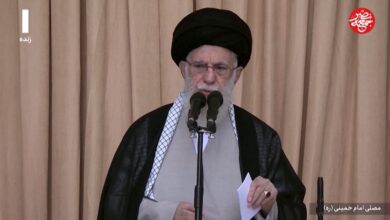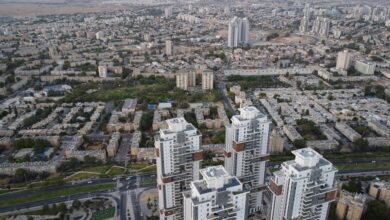Washington – President Barack Obama will seek to assuage some of America's fiercest supporters of Israel on Sunday,after a contentious couple of days when he endorsed the country's 1967 boundaries as the basis for a neighboring Palestinian state and clashed publicly with Israeli Prime Minister Benjamin Netanyahu.
In his speech to the American Israel Public Affairs Committee, or AIPAC, the president isn't expected to outline another significant US policy shift and will likely focus on the deep US-Israeli friendship and alliance.
But almost everyone in the room will be watching to see how the president addresses his remarks from Thursday, when in a major speech on the changing Middle East he declared that a future Palestine should be shaped around the border lines that existed before Israel captured the West Bank, Gaza Strip and East Jerusalem – with land swaps to account for Israeli settlements and other changed conditions.
Obama's endorsement moved the US position from noting the Palestinian goal for a country based on these terms and leaving the outcome to be settled through negotiation. By removing the nuance, he essentially stated what almost every observer assumed would have to be the border lines of a two-state solution, with mutually agreed adjustments.
Still, the change prompted bitter criticism from Netanyahu. And in a blunt display of differences, the two allies openly disagreed after a Friday meeting at the White House, with Netanyahu calling the 1967 demarcation "indefensible" and issuing a flat rejection of the idea.
"It's not going to happen," the Israeli leader said. "Everybody knows it's not going to happen."
Netanyahu, who will address the pro-Israel lobby Monday and Congress Tuesday, played down the rift Sunday.
"The disagreements have been blown way out of proportion," he told The Associated Press. "It's true we have some differences of opinion, but these are among friends."
Obama departs later Sunday for a weeklong European tour aimed at tending to old friends in the Western alliance and securing their help with the political upheaval across the Arab world and the decade-long conflict in Afghanistan.
Obama will visit Ireland, England, France and Poland.
The trip comes amid the continued NATO-led bombing campaign in Libya and a seemingly intractable conflict between Muammar Qadhafi's forces and Libyan rebels. Talks will also encompass economic concerns, as European countries make stark cuts in public spending and Obama and congressional Republicans try to hash out how to cut spending to bring US debt under control.




